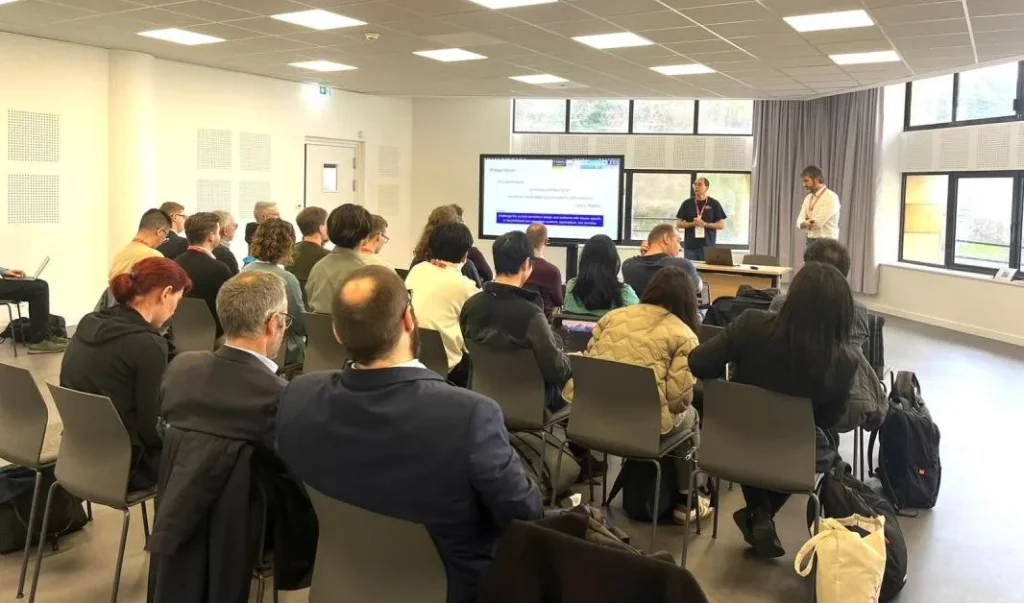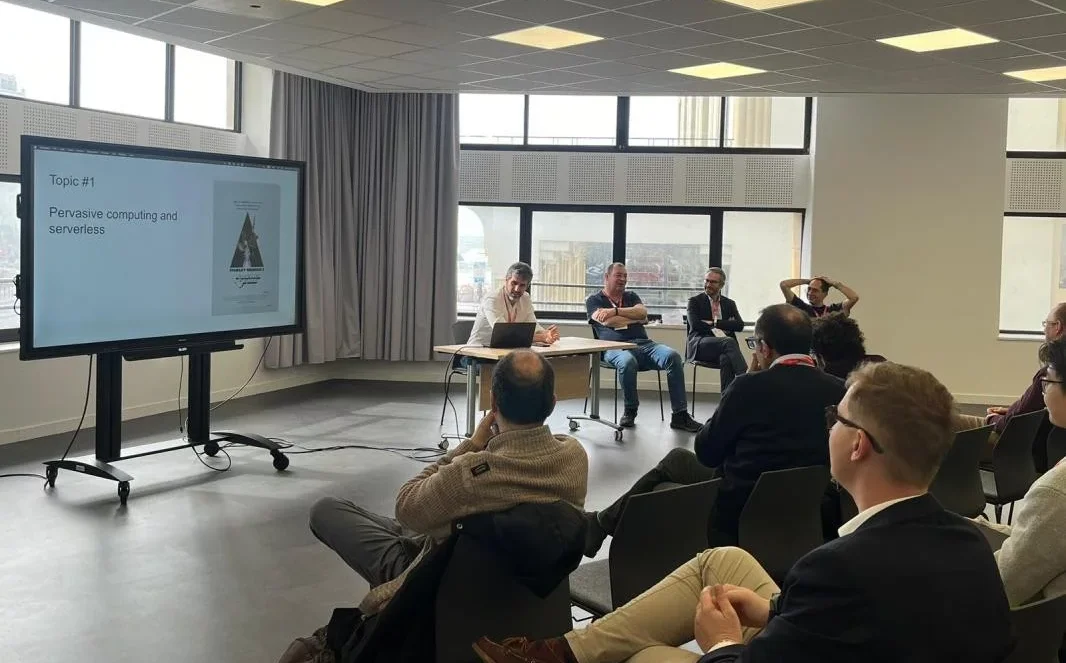Conclusion of the 3rd Edition of the *LESS Workshop at IEEE PerCom 2024

The third edition of the workshop on Serverless Computing for Pervasive Cloud-Edge-Device Systems and Services (*LESS), organized with the support of the Ministry of Economic Affairs and Digital Transformation of Spain and the European Union-NextGenerationEU through the UNICO 5G I+D SORUS project, took place on March 11, 2024, coinciding with the Conferencia Internacional de IEEE sobre Pervasive Computing and Communications (PerCom). The event was held at the Municipal Casino, an impressive building with panoramic views of the Atlantic Ocean from the tall windows of the ballroom where coffee breaks and lunch were served. Despite being the low season, in the following days, the beach would be packed with tourists and surfers, with seagulls flying overhead or searching for small fish in the shallow waters.
*LESS comenzó después de un delicioso almuerzo franco-vasco con una sala llena con más de 35 asistentes. Después de un breve discurso de bienvenida, los organizadores locales, Claudio Cicconetti y Pablo Serrano, cedieron el lugar al orador principal, Christian Becker. Su presentación comenzó con un viaje por el camino de la memoria, recordando a los asistentes mayores (y enseñando a los más jóvenes) cómo surgió la noción de capacidad excedente con la explosión de dispositivos de usuario final, lo que ha llevado a la computación en la nube y, posteriormente, a la computación en el borde. En la segunda parte del discurso, profundizó en las actividades realizadas en la última década por su equipo de investigación, que anticipó la tendencia actual de la computación serverless en el borde con la introducción del concepto de «tasklet». La audiencia estuvo cautivada durante toda la presentación y, al final, estaba ansiosa por hacerle al orador preguntas sobre las futuras direcciones de investigación.

Following were the next two presentations of the session. The first one was delivered by Josef Spillner, who illustrated the experiences and lessons learned from a trial in Ecuador involving data collection from edge computing/Internet of Things devices with serverless computing, with co-author Cristina Abad also engaging in the subsequent discussion from the audience. Then, Anton Semjonov presented the implementation of a distributed system to harness surplus capacity in personal devices from web browsers, using the emerging WebAssembly technology.
Next came the coffee break in the ballroom, an excellent opportunity for multiple parallel discussions on the topics covered in the keynote speech and the presented works, accompanied by a cup of coffee or tea and cookies.
The second session resumed with Carlo Vallati, who presented a study on making Apache OpenWhisk orchestration more energy-efficient when deployed on edge computing infrastructures. Orchestrating job offloading at the edge was also the focus of the following presentation by Florian Maier, proud in his first appearance as a speaker at an international event, arguing that an optimal parameter configuration is needed for latency-sensitive applications to avoid wasting the processing advantage near users.
Last but not least, Sourav Kanti Addya, Ph.D., concluded the session with his presentation on assisting a serverless platform programmer in making effective decisions considering both application latency and energy consumption, demonstrating results not only in simulation but also on a Raspberry Pi cluster.

Finally, time was reserved for a panel on the future of mobile serverless computing at the edge, where Christian Becker, Carlo Vallati, Pablo Serrano, and Claudio Cicconetti engaged with the audience discussing the open challenges of serverless computing at the edge, especially concerning pervasive computing and systems. An emerging key message was that the research community would greatly benefit from standardized benchmarks and open testbeds, as researchers often find themselves compelled to create their own evaluation tools, hindering comparison with the latest technology, if at all possible, and slowing down progress.

The organization of this event, which has brought together leading European figures in the serverless paradigm, has provided a privileged and forward-looking insight into the future of this technology and its impact on the deployment of 6G networks, guiding the development of the technologies studied in UNICO 5G I+D SORUS.



